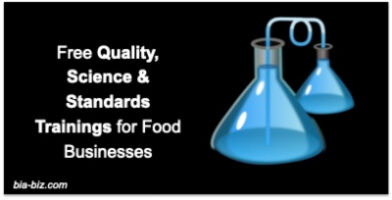How to Reach Optimum Health by Preventing Nutrient Deficiencies (Guest Blog)

Health goes beyond what the eye can see. When assessing health, what goes on internally is just as important as what transpires externally.
Many people are unaware that they may lack vitamins and minerals in their bodies. Usually, they pay attention to their health only when problematic symptoms appear. Nutrient deficiencies are widespread, and people who live with them may experience issues that can quickly be resolved by proper diet and supplementation.
10 Most Common Nutrient Deficiencies
Your body needs numerous nutrients to operate. Lacking any one of these can lead to illnesses and adverse health effects. Below are a few of the most common nutrients people tend to lack.
Before reading through the points below, it’s still important to consult your doctor. They’ll help you understand what nutrients you lack and what you can do to prevent deficiencies.
Iron
Iron deficiency presents itself through fatigue, pale skin color, dizziness, muscle weakness, and headaches. They are typically more frequent in women, especially during pregnancy, breastfeeding, and adolescence. Individuals with stomach or intestinal and bleeding disorders are also at risk of iron deficiency due to poor absorption of iron from food.
Addressing an insufficiency in iron is crucial as this might lead to conditions such as anemia, heart problems, and other more severe diseases. Increasing the intake of iron-rich foods — including fatty fish, poultry, red meat, beans, and fortified dairy products — helps supply the lack of this nutrient.
Vitamin D
The “sunshine vitamin” is another key component for the body to function at its best. It is responsible for proper calcium absorption, which is why a vitamin D deficiency could lead to poor bone health. Enough vitamin D is vital to maintaining the immune system, cardiovascular health, and testosterone levels.
Although vitamin D can be obtained through eating beef liver, egg yolks, and other fortified foods, it is still best to get a daily dose of sunlight. A good set of 10 to 15 minutes per day supports the body in making vitamin D through UVB radiation absorbed during sun exposure.
Iodine
Certain countries have an increased number of iodine deficiency cases, and one of their effective solutions is to enhance table salt with iodine. This mineral is crucial in thyroid function and production, impacting brain and bone development, metabolic rate, and overall growth.
Iodized salt, seaweed, dairy, and fish are great iodine-rich food. They help prevent problems with the lack of iodine, such as goiters, thyroid imbalances, and abnormal brain functions.
Calcium
Calcium deficiency in the body can lead to poor bone health, impacting the heart, muscle, and nervous systems. People who lack calcium usually do not intake enough calcium-rich foods, or their bodies cannot absorb it well.
To avoid experiencing calcium-related symptoms, adding dairy products, dark green leafy vegetables, and calcium-fortified drinks into the diet is best. At the same time, cutting back on caffeinated beverages, alcohol, and soda would help in better calcium absorption.
Magnesium
A magnesium deficiency can affect numerous metabolic and muscular functions. Supplements can help prevent muscle cramps, irregular heart rates, and high blood pressure. Consider adding foods packed with magnesium to your diets, such as beans, legumes, pumpkin seeds, and leafy green vegetables.
Folic Acid
Commonly prescribed to pregnant women, folic acid is responsible for blood health and supporting this developmental stage for both mom and baby. A high intake of alcohol and certain pills can cause folate deficiency.
It is best to discuss with a medical doctor about risks and side effects of medications to avoid any nutrient deficiencies. Consuming more eggs, fruits, dried beans, and leafy green vegetables generally helps increase folic acid levels in the body.
Vitamin B12
Vitamin B12 deficiencies are prevalent among those who don’t consume much meat, such as those on a vegan diet. It’s also common among seniors and those who suffer from gastrointestinal disorders.
There are many types of B vitamins, and vitamin B12 is essential for DNA building blocks and supporting the nervous system, among others. Those with vitamin B12 deficiencies are generally recommended to increase poultry, fish, eggs, and meat intake to keep their body healthy.
Vitamin C
Vitamin C plays a significant role in overall health. An insufficiency in vitamin C can lead to slow wound healing, gum problems, and delicate skin, causing easy bruising.
To enhance collagen production, fight free radicals, and improve absorption of other nutrients and minerals, it is best to eat more foods rich in Vitamin C, such as citrus fruits, kiwi, sweet potatoes, bell peppers, strawberries, and broccoli.
Vitamin A
Eye health is usually associated with Vitamin A, but this mineral also benefits skin health and the immune system. People can prevent vitamin A deficiency by consuming spinach, pumpkins, carrots, papayas, mangoes, and chard.
Essential fatty acids
Brittle nails, acne, and scaly skin are signs of a deficiency in essential fatty acids. These are essential to balance and provide omega-3 and omega-6, which help maintain cardiovascular health, prevent arthritis and cancer, support brain function, and more.
Cold water fish, nuts, olive oil, and flaxseed are excellent sources of essential fatty acids.
Optimum Health with Supplements and Diet
Supplying the body with all the necessary vitamins and minerals can be challenging. It is crucial to eat a balanced diet to ensure enough nutrients are provided. One way to maximize it is through supplements. Although it is best to get nutrition from food, supplementation may help.
Optimum well-being can be achieved through the necessary lifestyle changes, including proper diet, exercise, supplementation, meditation, and other healthy practices. The healthier your body is on the inside, the better you’ll look on the outside.






